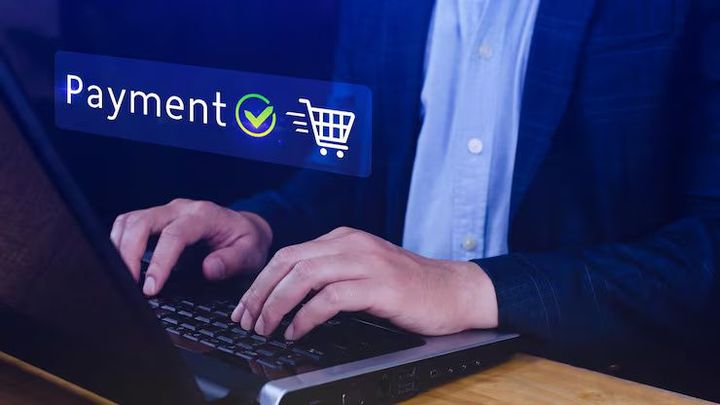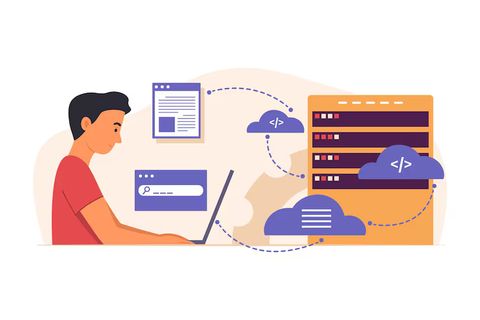
Guide for Choosing the Right Ecommerce Payment Gateway
Ecommerce payment gateways are digital systems that allow businesses to accept and process online payments securely. They act as intermediaries between a customer, the merchant, and the financial institution that authorizes the transaction. These gateways validate payment details, encrypt sensitive information, and ensure funds are transferred safely.
The demand for payment gateways exists because online shopping requires a secure and reliable method to collect payments without direct bank interaction. As ecommerce evolved from simple online marketplaces to global platforms, payment gateways became essential for reducing fraud, improving checkout experiences, and supporting multiple payment methods including cards, wallets, UPI, and buy-now-pay-later services.

Today’s ecommerce environment depends on payment gateways for smooth digital transactions, faster approvals, and flexible integrations with websites, apps, and POS systems.
Importance: Why Payment Gateways Matter Today
Payment gateways play a significant role in ecommerce operations. Their importance is linked to customer expectations, digital transformation, and business efficiency.
Who benefits from them?
-
Ecommerce store owners who need secure online payment acceptance
-
Small businesses and startups launching digital storefronts
-
Freelancers and service providers collecting online payments
-
Consumers who expect safe, fast checkout options
Key Problems They Help Solve
-
Security risks – Gateways encrypt sensitive payment data to reduce fraud.
-
Slow transaction processes – Automated settlement and instant authorization speed up payments.
-
Customer trust issues – Recognized payment gateways increase confidence during checkout.
-
Multiple payment method requirements – They support cards, UPI, wallets, net banking, and EMI options.
-
Integration challenges – APIs and plugins allow easy connection to ecommerce platforms like Shopify, WooCommerce, and Magento.
How they impact business outcomes
-
Reduced cart abandonment through smoother checkout
-
Better cash flow with faster settlement cycles
-
Broader market reach by enabling international payments
-
Data insights through transaction dashboards and analytics
Recent Updates: Trends and Changes in the Last Year
The ecommerce payment landscape has evolved rapidly, with updates in technology, security, and regulatory practices. Here are some noteworthy developments from the past year:
Digital Payment Expansion (2023–2024)
-
Growing adoption of contactless and card-not-present payments.
-
Increased usage of UPI for online shopping, especially in India.
-
Wider adoption of BNPL (Buy Now Pay Later) options on ecommerce platforms.
Security and Fraud Prevention Enhancements
-
Strengthening of multi-factor authentication for online transactions.
-
More businesses using AI-based fraud detection systems in 2024.
Cross-Border Payment Growth
-
Platforms increasingly supporting international cards and multicurrency payments.
-
More ecommerce businesses in emerging markets connecting with global gateways for exporting.
New Integration Capabilities
-
Payment gateways now offer improved plug-and-play tools, reducing custom development needs.
-
Growth of API-first gateways for faster integration with mobile apps.
Graph: Growth in Digital Payments 2021–2024
| Year | Approx. Digital Payments Growth | Notes |
|---|---|---|
| 2021 | Moderate growth | Early post-pandemic expansion |
| 2022 | Strong growth | Increased ecommerce usage |
| 2023 | Rapid adoption | More UPI, wallets, BNPL options |
| 2024 | Continued acceleration | More global and cross-platform integrations |
Laws or Policies Affecting Ecommerce Payment Gateways
Regulations play a major role in how payment gateways operate. These policies ensure consumer protection, data security, and financial transparency.
Key Regulatory Areas
-
Data Protection Laws – Requirements for secure handling of customer information.
-
KYC and AML Guidelines – Merchants must follow Know Your Customer and Anti-Money Laundering rules to prevent misuse.
-
PCI-DSS Compliance – Payment Card Industry standards required for processing card transactions.
-
Two-Factor Authentication (2FA) – Mandated for most card-based online purchases to enhance security.
-
Cross-Border Payment Rules – Gateways must comply with export/import payment regulations when serving international buyers.
Impact on Businesses
-
Merchants need to provide verified documentation before accepting payments.
-
Gateways must maintain transparent settlement, chargeback, and refund procedures.
-
Compliance helps businesses build trust and avoid financial penalties.
Tools and Resources: Helpful References for Choosing a Gateway
Selecting a payment gateway becomes easier when supported by the right tools and resources.
Popular Payment Gateway Providers
-
Razorpay
-
PayPal
-
Stripe
-
PayU
-
Cashfree
-
Square
-
Authorize.net
Integration Tools and Plugins
-
Shopify payment plugins
-
WooCommerce payment extensions
-
Magento payment modules
-
API documentation provided by gateway platforms
Cost and Fee Calculators
Some providers offer built-in calculators for:
-
Transaction fee estimation
-
Settlement timeline calculation
-
Currency conversion fees for international payments
Useful Websites and Platforms
-
Government digital payment information portals
-
PCI-DSS documentation library
-
Developer forums for ecommerce integrations
Table: Comparison Factors for Gateways
| Criteria | What to Check |
|---|---|
| Transaction fees | Per-transaction charges, monthly fees |
| Settlement time | Same-day, next-day, or T+2 cycles |
| Payment methods | Cards, UPI, wallets, EMI, net banking |
| Security features | Tokenization, 3D Secure, fraud detection |
| Integration options | APIs, plugins, SDKs |
| International support | Multi-currency acceptance |
| Dashboard/Reports | Real-time analytics, statements |
FAQs
How does a payment gateway work?
A payment gateway verifies customer payment details, encrypts the data, sends it to the bank for authorization, and confirms whether the transaction is approved. It ensures secure and fast online transaction processing.
What is the difference between a payment gateway and a payment processor?
A payment gateway collects and encrypts payment information, while the processor handles actual communication between banks. Both work together to complete a transaction.
Are payment gateways safe for ecommerce?
Yes. Reputable gateways follow strict security standards such as PCI-DSS compliance, encryption, and multi-factor authentication to protect user data.
What fees should businesses expect?
Fees vary by provider but usually include a per-transaction fee, potential monthly fees, currency conversion fees, and charges for optional services like international payments.
Can a business use multiple payment gateways?
Yes. Many ecommerce stores integrate more than one gateway to offer more payment choices and reduce downtime if one service is unavailable.
Final Thoughts
Choosing the right ecommerce payment gateway is an important decision for any business operating online. A suitable gateway helps improve security, speed of payments, customer experience, and operational efficiency. By evaluating factors such as payment methods, integration options, compliance requirements, and overall costs, businesses can select a gateway that aligns with their goals. As digital payments continue to expand, having a reliable and well-supported payment gateway will remain essential for sustainable ecommerce growth.










